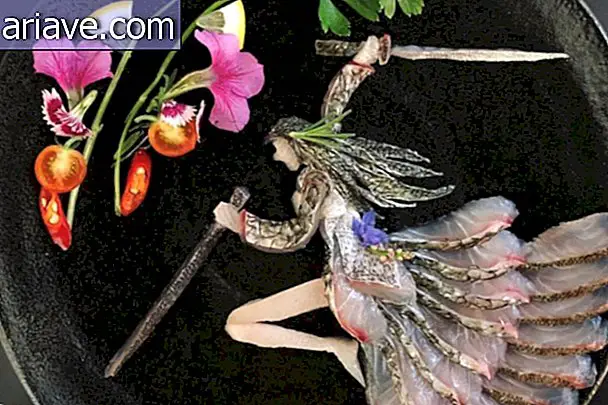Why do we feel when a person looks at us?
Has it ever happened to you to suddenly have that weird feeling, look sideways and catch someone watching you? Where does this feeling come from? Was the "sixth sense" in action, pure intuition or, perhaps, the power of premonition? In fact, according to Laura Moss of Mother Nature Network, realizing when someone is looking at us is nothing paranormal, and the responsible for this phenomenon is the brain.
According to Laura, our brain is programmed to record "clues" in the environment and alert us if someone is looking at us. This is part of our survival instinct and, as he explained, many mammals have a similar system that warns them when another animal - a potential predator - is nearby and on the prowl.
Detection system
In the case of humans, the risk detection system is very effective, especially at a distance, which means we can easily identify when someone is looking at us - especially if that person is looking straight at us. However, although it is a natural response, don't think it is simple action, because to judge whether we are being watched or not, the brain must process a lot of information.
Studies have shown that the mere position of the body or head of the "watchers" can awaken our detection system, and if that person is facing us, it is quite easy to deduce where the focus of their attention is.

In addition, detection becomes even simpler if the viewer's head is pointed in our direction and the body is facing another, as one only has to look into the subject's eyes to determine where he is looking. In this sense, humans have an advantage over many animals, as pupils and irises stand out from the sclera - the white part of the eye - allowing us to identify the focus of others' attention.
In fact, according to Laura, one of the reasons humans have developed larger scleras is that our survival depends largely on interaction with other group members - and the contrast between the whites of the eyes and the pupil / iris facilitates eye contact. Returning to the risk detection system, the brain also relies on the information recorded by our peripheral vision to assess a hazardous situation.
Survival instinct
According to Laura, humans have evolved to realize when they are being watched because every glance from another person poses a potential risk. After all, a direct look can be interpreted as evidence of domination or threat, so being able to identify danger signals is vital to our preservation.

One experiment revealed that when we cannot determine the direction in which a person is looking - because he is wearing sunglasses or being in a poorly visible place - we usually feel that we are being watched. This is because, in the absence of information, the brain assumes that the subject is looking at us, because in doubt, being alert may be the best strategy to escape an attack.
Have you escaped dangerous situations thanks to your “sixth sense”? Comment on the Mega Curious Forum











